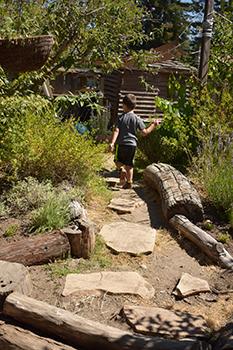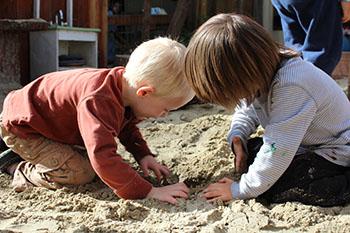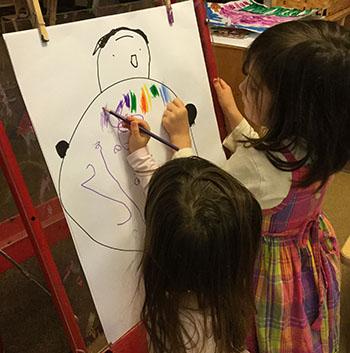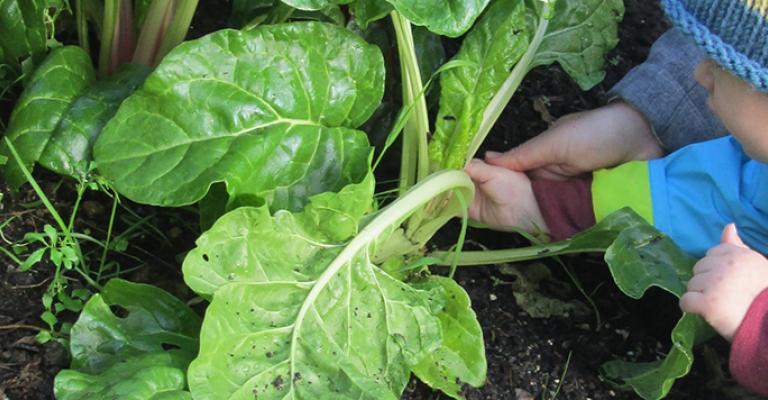Poppy Environment


The Poppies Environment is made up of our oldest students, ages 3 to 5 years. This program offers opportunities that emphasize self-directed, open-ended play activities that are developmentally based. We encourage independence, initiative, self-expression and responsibility for self, for others and for the environment. Our classroom environment encourages learning through investigation and exploration. Students are invited to question how the world works and participate in curriculum projects that will help answer these questions. Our curriculum address the physical, social, emotional, and cognitive learning of the child.
In our environment, children are free to choose from a variety of both child-initiated and teacher-guided play activities such as: block play, loose part manipulation, dramatic play, puzzles and games, movement, creating, and music. This array of activities collectively develop skills in problem solving, critical thinking, creativity, gross and fine motor control, art, science, math, language/literacy, sensory, social-emotional, and sensory.
Daily, monthly and yearly exploration is planned using emergent curriculum as a way to support students’ interests and passions. We observe and identify themes found in the rich play of children and use these observations to support the opportunity for them to explore their ideas. Elizabeth Jones refers to children in this age group as “Master Players” (1997). From the play themes, we determine curriculum to support the children’s interests.
As play themes emerge, projects begin. “Children have a strong disposition to explore and discover. The Project Approach builds on natural curiosity, enabling children to interact, question, connect, problem-solve, communicate, reflect, and more.


Approximate Times | Activities | What the Children Do |
|---|---|---|
| 7:30- 9:00 | Arrival | Children arrive at school before 9:00 a.m. Children will transition to school with help from parents and staff Parents depart Children participate in self-selected play activities such as blocks, dramatic play, table tops activities, etc. |
| 8:00-8:45 | Breakfast Offered | Children are invited to breakfast. |
| 9:15 | Morning Meeting | Children will gather in small groups to discuss plans for the day as well as join for songs, stories and experiences related to the current curriculum topic/study |
9:30-11:30 10:00 | Activities Self-Served Snack Offered (and encouraged) | Children will self-select various play activities inside and out throughout the morning related to the curriculum and the children’s interests. Included in this time is a self-served snack. During this time, Poppies often take walks around the campus and/or take their turn to care for the Community Garden. |
| 11:45 | Clean up Large Group Gathering | After a clean-up time, children gather together for stories, movement activities, and puppet play. All children are encouraged to participate |
| 12:00 | Lunch | Children will wash up for lunch and eat a Children’s School-family style lunch |
| 12:30-3:00 | Nap or | After lunch, children will wash up, brush their teeth, find their nap/rest place and begin their rest |
| 1:30-5:00 | Snack and Afternoon Play | Snack will be provided at 2:30. Children will self-select play activities inside or outdoors or both, help care for the outdoor environment, and prepare for departing the school based on their daily schedules |
5:00- 5:25 (School closes at 3:45 on Thursdays) | End of Day | All children will come inside, ready themselves for departure, and join in listening to books. |


